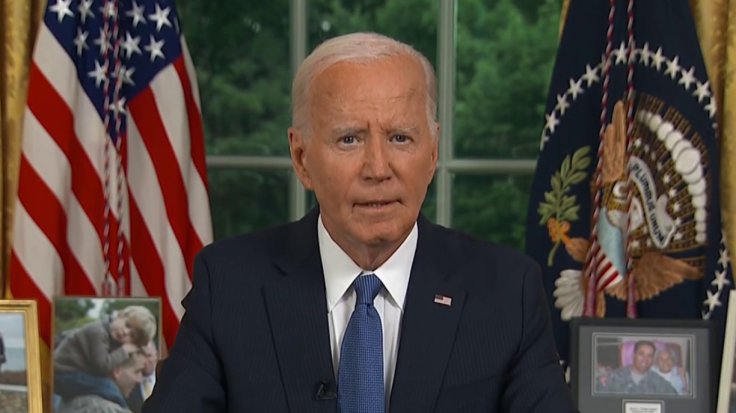In a groundbreaking decision, President Joe Biden commuted the death sentences of 37 federal inmates just two days before Christmas, emphasizing his long-standing opposition to the federal death penalty. This bold move includes individuals convicted of severe crimes, such as child murder and mass killings, yet Biden made it clear that his decision was not an endorsement of their actions.

In a public statement, Biden expressed deep sympathy for the victims and their families, stating, "Never be misled: I denounce these killers, mourn the victims of their heinous deeds, and weep for all the families who have endured unspeakable and irreversible loss." While he acknowledged the gravity of the crimes, Biden's personal and professional experience, including his time as a public defender, Vice President, and Senate Judiciary Committee Chairman, led him to the conclusion that the federal death penalty should be abolished.
Two of the most notorious individuals among those whose sentences were commuted are Thomas Steven Sanders and Anthony George Battle. Sanders was convicted of the abduction and brutal murder of a 12-year-old girl in 2010. His crime shocked the nation, and many believed he deserved the death penalty for such a heinous act. Despite the gruesome nature of his crime, Biden's decision to commute his sentence to life without parole reflects a broader push to end capital punishment.

Similarly, Anthony Battle's case drew significant attention. In 1994, Battle murdered a prison guard while serving a life sentence for the 1987 rape and killing of his wife, a U.S. Marine. His violent past made him a prime candidate for the death penalty, but Biden's commutation decision reflects his belief that the death penalty is not a solution, regardless of the crimes committed.
While Biden's commutation has garnered both praise and criticism, it is an important part of his administration's broader efforts to reform the criminal justice system. Critics argue that pardoning convicted murderers undermines justice and disregards the victims' families. However, others view it as a necessary step toward rethinking the use of the death penalty in the United States. The commutation also aligns with Biden's previous actions to halt federal executions and his ongoing campaign to abolish the death penalty at the federal level.
Biden's decision is part of his wider initiative to overhaul the criminal justice system, which includes commuting sentences for thousands of individuals during the COVID-19 pandemic and pushing for broader criminal justice reforms. His stance on the death penalty has become a defining aspect of his presidency, reflecting his deep convictions about fairness and justice.
The decision to grant clemency to these inmates remains controversial. While some see it as a step forward in reducing the use of the death penalty, others argue it compromises the pursuit of justice. Regardless, Biden's move has reignited national discussions on the future of the death penalty in the United States and its place in a modern justice system.









